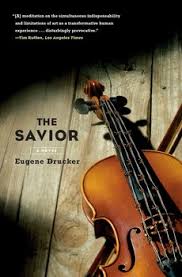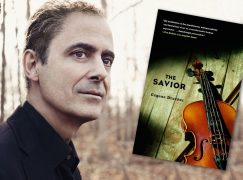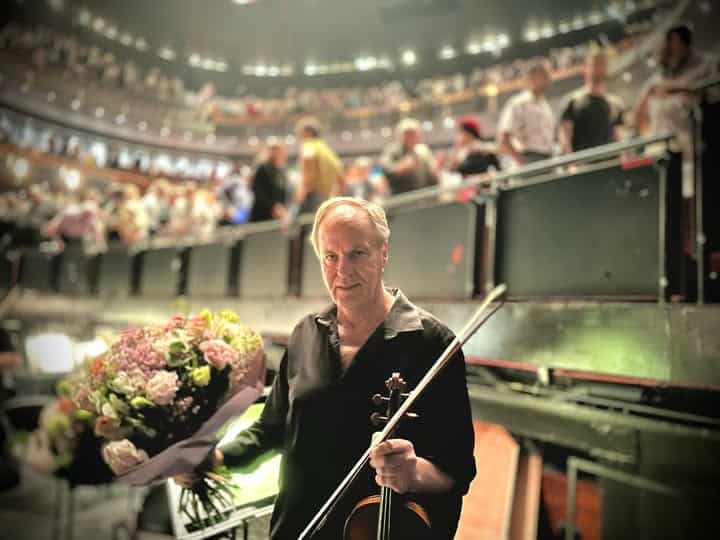Welcome to the Slipped Disc book club
mainEvery fortnight, we’ll discuss a different book with a musical theme, sometimes with its author.

Here’s our curator, Anthea Kreston:
Welcome to our first Fortnightly Music Book Club. We will, over the course of the next month, have an incredible opportunity to hear from one of the world’s foremost living chamber musicians, Eugene Drucker of the Emerson Quartet. We asked him if he would host, using his novel, The Savior, as our first selection. Future selections, led by a range of musicians, include Thomas Mann’s “Death in Venice” and Vikram Seth’s “An Equal Music”. Questions for the author should be submitted to this email address: fortnightlymusicbookclub@
From Eugene Drucker:
‘I am honored to have been chosen to present The Savior as the first selection for the Fortnightly Music Book Club. Several strands of experience and obsession contributed to the formation of this novel: My father, who grew up in Cologne and studied at the Musikhochschule there until 1933, told many stories about the milieu in which he lived and worked before emigrating to the USA in September 1938. I was always fascinated by the history of the Third Reich and perplexed by the age-old question of how one of the most advanced civilizations, which had produced some of the world’s greatest music and philosophy, could descend to such levels of barbarism. There can never be a completely satisfactory answer to this question; the best one can do is to reframe it from different angles — looking at German (and Austrian) society as a whole but also at the choices and deeds of individuals — and to probe one’s own conscience, trying to imagine honestly how one would have acted under similar circumstances.
‘Performing in hospitals, a psychiatric ward, a drug rehab center and an alcoholics’ ward in order to prepare for the Queen Elisabeth Competition in 1976 gave me the initial idea for the novel’s foreground. But it was my varied readings as an English and Comparative Literature major at Columbia University that sparked my imagination: psychological novels like Crime and Punishment, Notes from Underground and Le Rouge et Le Noir had a big impact on me. So, too, did allegorical works like Spenser’s The Faerie Queene. It was a broad range of literary symbolism that inspired and enabled me to think of transposing my own experiences and struggles into a completely different historical setting, one with grave moral implications and potentially deadly consequences.
‘I look forward to addressing your questions and comments over the coming weeks, and very much appreciate having a platform where we can interact as people who share an abiding love of music.’
Have you read The Savior yet? Do you have questions for the author? Or a similar experience?

Post your comments below.
This is a unique opportunity for passionate and inquisitive readers to come together, and to hear directly from major musical voices of our time. Join us. Fortnightlymusicbookclub@
Here’s a list of the music referenced in the novel.





Comments